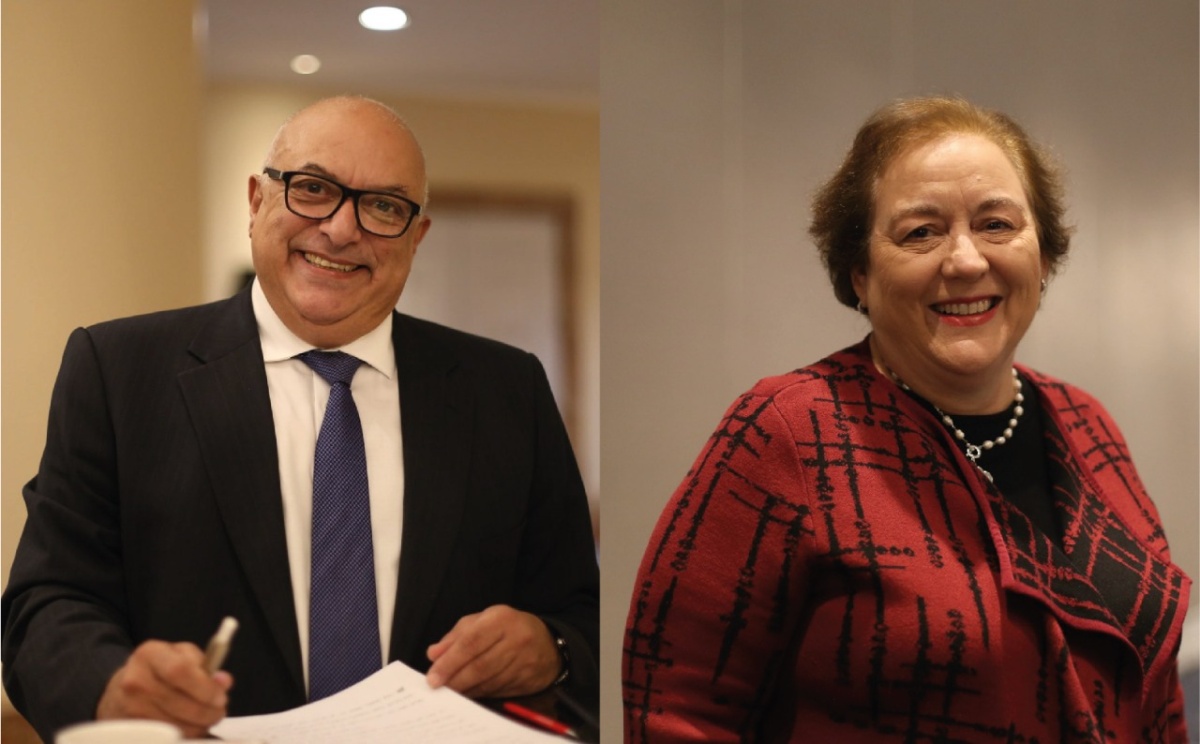While the participants in the Brussels Fifth Conference announced their pledges to Syria and the region amounting to $ 4.4 billion for the year 2021, in addition to pledges amounting to nearly two billion dollars for 2022 and beyond, they emphasized the importance of launching an inclusive and effective effort prioritizing the protection of the Syrian people and reaching a political solution to the Syrian crisis. The participants also stressed that host countries should not be left to face the burden of the prolonged refugee crisis alone, especially after the decrease in the levels of support.
The conference which was held on March 29 and 30, 2021, incorporated perspectives of civil society in Jordan; Senior consultant at Durrat Almanal for Development and Training and member of JONAF steering committee, Dr. Sawsan Al Majali represented the Jordan National NGO Forum (JONAF) and the Jordan International NGO Forum (JIF) at the “Day of Dialogue” the economic expert and former Minister of State for Economic Affairs Dr. Yusuf Mansur joined the Ministerial Session as a rapporteur of civil society in Jordan.
The Brussels conference acts as the main pledging event for Syria and the region in 2021 by addressing the most critical humanitarian and resilience issues affecting Syrians and communities hosting Syrian refugees and mobilizing the international community with the aim to renew its political and financial support for Syrians to better face these issues.
The two-day conference started with the “Day of Dialogue.” The first panel tackled “Economic development and sustainable livelihoods in the region,” during which the perspectives of civil societies and governments from Jordan, Lebanon, and Turkey were made known by their representatives.
Al Majali, speaking on behalf of JONAF and JIF, incorporated key messages from the 2021 Walk the Talk report, prepared by the coalition, on progress and challenges faced in implementing the commitments made by the government of Jordan and the international community under the Jordan Compact and the previous Brussels conferences. She said Jordan has a history of hosting refugees and there has been an increased “internationalization” of the refugee response in the kingdom, which excludes local actors from the decision-making process and treats them on an unequal footing with international institutions. “We need the relationship to be complementary in order to achieve better results,” said Al Majali.
She also talked about the significant effects COVID-19 has had for both refugees and Jordanians, adding that because Syrians are involved more in the informal sector, the lockdown measures had a notable impact on employment, which reached 65.1% in the second quarter of 2020 among Syrians. She also referred to the decline in the quality of education as schools transitioned to online learning platforms. Further challenges mentioned included lack of mental health and domestic violence support services during the pandemic and the need for further legal support for Syrians.
Al Majali ended her intervention calling for a simplification of the processes of applying for EU funding by local NGOs, as the complexity of the process as it now contributes to an unequal relationship between international donors and local civil society organizations.
The second day of the Brussels Conference was dedicated to higher-level discussions. During the ministerial session, in a pre-recorded message, Mansur brought to the forefront the “double crisis” Jordan is facing — the Syrian refugee situation and the COVID-19 pandemic — and called on wealthy countries to support less affluent countries in purchasing vaccines.
Mansur also stressed the importance of localization, an issue which has assumed more acute prominence during the pandemic, as local NGOs and CSOs have shouldered greater responsibilities and delivered services on the ground.
“Both local and international civil society organizations are essential resources, and their expertise, knowledge, and collaboration must be integrated throughout interventions in education, livelihoods, protection, and health,” said Mansur, adding: “We must work toward supporting national stakeholders, in particular in addressing emerging issues and buttressing the capabilities of local civil society through genuine participation and involvement, in order to ensure sustainable ownership at the community level.”
Mansur also urged stronger investment in education, prioritization of mental health and psychosocial support programs, and integration of protection mechanisms in national response plans and economic recovery packages.
The Conference commended the significant and tangible efforts made by Jordan, in particular in terms of extending services including enrolment of Syrian refugees in education, access to the labor market and healthcare. It also commended Jordan for launching an inclusive COVID-19 vaccination campaign, and for being the first country in the world to provide vaccination in refugee camps. It recognized the urgency of maintaining investments in quality social services that are cost-effective, water, health, and education and equitably accessed by host communities and refugees. The Conference reiterated the readiness of the international community to support Jordan’s efforts.
While JONAF welcomes the Brussels Conference’s role in highlighting the suffering of millions of people, especially Syrian refugees in the region, it stresses that the need for concerted efforts is greater today more than ever before- after ten years of conflict and the deterioration of the humanitarian situation, in light of the increasing needs in 2021 due to the Covid-19 pandemic and economic decline. JONAF also called on the international community to exert more efforts to support ending the conflict and ensuring peace in the region.


